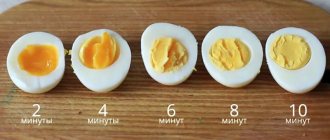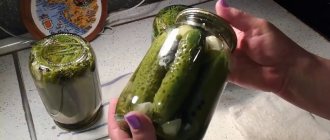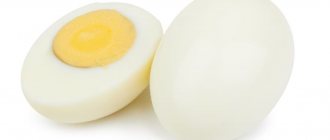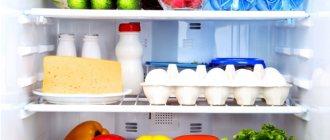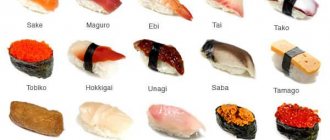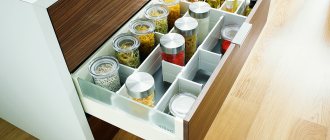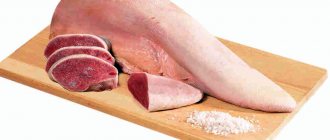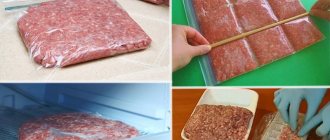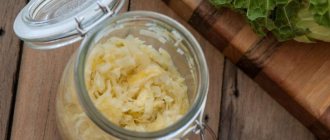How many days to store?
Quail eggs differ from chicken eggs not only in shape, size and composition, but also in preservation. The product retains its beneficial properties at low temperatures.
Shelf life of raw eggs
You should not keep the eggs in the room for a long time: this will significantly reduce their shelf life. The product retains its beneficial properties for the maximum amount of time when the temperature is controlled.
Eggs are stored:
- in a room with low humidity – 25-35 days,
- in the refrigerator (on the shelf, not on the door) - 55-65 days.
After two months, the product can be used in cooking to prepare:
- salads,
- bakery products,
- second courses.
Quail eggs contain a protein substance - lysozyme, thanks to which the product has such a long shelf life . But over time, it contains fewer nutrients.
How many days do boiled eggs last?
The finished product is stored for a short period of time. It must be used within seven days.
It is important to comply with the terms and conditions:
- Boiled eggs should be stored when they are hard-cooked.
- Soft-boiled ones are stored for 2-3 hours.
- In the absence of a refrigerator, the finished product retains its beneficial properties for 8-11 hours. To prevent the eggs from cracking and spoiling ahead of time, after boiling they are wrapped in newspaper or paper.
- In the refrigerator, the shelf life increases - 5-6 days. A whole product is stored longer, damaged, with a cracked shell - 1-2 days.
Be sure to read:
How to quickly defrost dough: effective methods, basic rules
Eggs are placed separately from fish products, citrus fruits and spices - they “absorb” the smell and spoil faster.
In salads
The shelf life of quail eggs in salads is much shorter and is 24-48 hours. The time to consume the finished salad depends on the ingredients and dressing.
Salads dressed with mayonnaise are stored in a cool place for no more than a day. A prepared dish with olive oil can be placed on the table after 48 hours, but if it does not contain any perishable product.
Storing quail eggs at home
There are two known ways to keep this natural product fresh:
- at room temperature;
- in a refrigerator.
Experienced housewives prefer refrigerated storage, since in this case the time period increases to two months.
When storing quail eggs in refrigeration, it is best to place them in plastic or cardboard packaging and place them with the sharp end down, this reduces the risk of breaking the egg
It is important to remember that during refrigerated storage you should not keep meat products, fish and other products with a strong smell nearby. You should also remember that quail eggs must be washed under the tap before cooking, and not before storage.
In this way, you preserve an important layer on the surface of the shell and increase shelf life. It is strictly not recommended to store eggs in the refrigerator on the doors. This is due to the fact that when constantly opened, the temperature in the refrigerator itself changes and, accordingly, the shelf life is significantly reduced.
When stored outside the refrigerator. In fact, quail eggs have a huge advantage in that they have a long shelf life at a temperature of 24 degrees. Some people at home place quail eggs in a large bowl of water and cover with salt (proportion: 1 tablespoon of salt per 1 liter of water). If any eggs float to the top after immersion, they should be disposed of immediately, as this is the first sign of a spoiled product. On farms with a large volume of refrigerators, there are not enough refrigerators, and farmers have to use the old proven recipe - the product is coated with fat. This can be either pork fat or sunflower oil, after which the eggs are immersed in cardboard boxes with ventilation holes
It is very important that the eggs do not touch each other. At the bottom of such a box there must be some kind of soft layer, which will “save” the egg shells from possible blows
For example:
- sand;
- hay;
- ash;
- shavings;
- paper.
The second method, which makes it possible to increase the shelf life to one year, is extremely rarely used in everyday life due to its unique method. The eggs are placed carefully in a glass container; if desired, you can use porcelain or ceramic dishes so that they do not touch each other, and the container is filled with ready-made slaked lime. Lime should be diluted in a ratio of 1 to 5. When stored in this way, slaked lime should completely cover the eggs with a margin of 2-3 centimeters, and be stored in a basement or barn with a temperature no higher than 10 degrees and no lower than zero.
Secrets of refrigerator storage
Eggs retain their beneficial qualities for approximately two months , but experienced housewives claim that this time can be increased.
It is worth following a few simple rules:
- Quail eggs are stored in their original packaging. If it is not there, buy a tray.
- Observe the temperature regime – +3…+5 ˚С.
- The testicles can be preserved longer by using beeswax. Hard-boiled eggs are placed in melted wax so that it covers the shell on all sides, and wait to cool. Place in the tray with the sharp end down. If there is no wax in the house, use any fat.
- The current shelf life is increased by three days: the eggs are dipped in a solution of potassium permanganate and wiped with sunflower oil.
- Refrigerator doors are not suitable for long-term storage; it is better to choose lower drawers. You can pour certified salt into the tray.
- The eggs are stored frozen in the freezer for 9-11 months. They must be free of cracks.
These simple rules will help preserve the product for a long time without losing its beneficial properties.
Optimal storage conditions
In order for eggs to be stored properly and not lead to food poisoning, they need to be provided with normal conditions. It is recommended to take into account several important parameters.
Temperature
There are several options for maintaining temperature conditions. Depending on this, the following types of storage are distinguished:
- In a dry, ventilated room at a temperature of +22-24 degrees. If the product is opened, it retains its characteristics for 1 month.
- Under the same conditions, but in a closed container, the products can remain fresh for 2 months.
- Temperatures of 0-8 degrees ensure longer storage. It can last 4 months.
Illumination
It is best to keep the products in a dark place. This could be the bottom shelf of the refrigerator or a closed tray.
In any case, it is important that the surface is not exposed to direct sunlight.
Correct masonry
It is recommended to place the product in trays with the sharp side down. Thanks to this, the yolk will not reach the air gap, which is located at the blunt end. It is permissible to wash eggs only before eating. Otherwise, their shelf life will be reduced to 1 month.
The product has a thin and fragile shell. Therefore, every month the products should be checked and sorted. In this case, it is recommended to remove soft or damaged specimens.
Package
Products may be stored on special stands. It is also acceptable to use the tray in which it was sold for this purpose.
Storage at room temperature
The room should be warm and dry. But the air temperature should not exceed +25˚С.
If you adhere to the norm, the shelf life is one month. When humidity is high, bacteria begin to multiply in the testicles.
If the temperature in the apartment is not maintained, eggs are stored in water. They are placed in a container or bowl, filled with water, and 1 tbsp is added. l. table salt.
Be sure to read:
How long can propolis be stored: tincture and dry form?
If they float up, the product is spoiled.
What is not recommended to do
No matter how strange it may sound, special compartments located on the refrigerator door are not the best place to store eggs. Its constant opening and closing allows warm air to enter, especially in hot weather. At the same time, the humidity indicator also changes. This, in turn, significantly reduces the shelf life of eggs. It is better to place them on the refrigerator shelf in store packaging or a plastic container.
You can put eggs on the door shelf in special containers only if you are going to eat them in the near future (up to 7-10 days).
Special compartments located on the refrigerator door are not the best place to store eggs.
Many people make a common mistake: they wash eggs to remove dirt before putting them in the refrigerator. This is not necessary, since water destroys the natural protective film on the shell. It is recommended to wash only dietary eggs with soap before consuming them raw. Washed eggs can be stored in the refrigerator for 12 days.
When leaving quail eggs, it is worth monitoring the room temperature and cooling in the refrigerator, observing all storage instructions. Only in this case the product will be beneficial and will not harm your health.
How to easily peel quail eggs?
Quail eggs can be easily peeled in a variety of ways. To facilitate the cleaning process, after heat treatment they are placed in cold water.
Quail eggs have a dense shell and will take longer to clean than chicken eggs.
Method 1
Sequencing:
- Place the product in a bag or wrap it in cling film.
- Transfer to a hard surface (countertop, board).
- Press with your hand: the shell should crack.
- Gently pull the film - the shell will be easily removed.
Method 2
Sequencing:
- Place the eggs in a container.
- Fill with water and close the lid.
- Shake - the shell cracks and is easily removed.
How to choose a quality product
To select high-quality quail eggs, follow two basic rules :
- Open the package and carefully inspect the shell for chips and cracks. The whole shell guarantees long-term storage.
- Pay attention to the expiration date indicated on the packaging.
The uniqueness of quail eggs lies in the fact that a spoiled product does not rot, but shrinks from the inside . If you suspect that the product has disappeared, just place a raw quail egg in water. Dried specimens will float.
Attention! The weight of a quail egg is 10-12 g. If it weighs less, there is a high probability that it has dried out and is no longer suitable for consumption.
When choosing a product, do not pay attention to the color of the shell . The color and number of spots depend on the breed of quail and do not in any way affect the taste or ability of the eggs to be stored for a long time.
We take into account the date of purchase and laying of eggs
It is important to consider the packaging date of eggs when purchasing them at the store. It is indicated on the top of the plastic box. An equally important factor is the date of laying: it is stamped on the eggs themselves.
It is worth buying only fresh product - the period from the date of demolition to purchase should not exceed three weeks.
Having bought eggs at the market, the buyer will not know the exact date. The product should be consumed within two weeks, after checking its freshness.
Before purchasing, you should ask the seller for the demolition period; it should not exceed 7-10 days.
You should not buy the product at the market - the eggs may be spoiled or stale.
It is recommended to cook the eggs during the first month - during this period they are most useful. After the shelf life expires, they may not deteriorate, but they will not bring any benefit.
Features of storing raw eggs
The shelf life of quail eggs largely depends on the conditions in which this product finds itself:
the temperature should not fall below zero and rise above 24 ° C; It is better to store them in rooms with a relative humidity of 70%; The product should not be exposed to sunlight, so a window sill is not an option; It is recommended to wash immediately before use, otherwise their shelf life will be reduced by approximately half, since the air permeability of the shell will be impaired and the process of deterioration will begin inside; it is important that each egg is in the correct position, that is, with the blunt end up, because it is on this side under the shell that there is a small air chamber designed to provide oxygen to the future chick and remove carbon dioxide and hydrogen sulfide; the integrity of the shell should not be compromised; specimens with damaged shells must be cooked and eaten first; By the way: their protective shell is not as fragile as chicken shells, and when they fall, they usually do not break, because their thin shell simply wrinkles. However, they require delicate handling and are best stored in a special container; store-bought cellular packaging is also perfect. In the refrigerator they are often usually stored on the door shelf, which is actually not so practical
Temperature changes and repeated daily shaking are not good for them. But a compartment for storing fresh vegetables and fruits is an ideal place!
In the refrigerator, it is often customary to store them on the door shelf, which is actually not that practical. Temperature changes and repeated daily shaking are not good for them. But a compartment for storing fresh vegetables and fruits is an ideal place!
If there is no refrigerator
Don't be upset if you don't have a refrigerator at home. Food will retain nutrients without low temperature.
To do this, place at the bottom of a wooden basket:
- sand,
- sawdust,
- salt,
- wood ash,
- bran.
The eggs are wiped with fat, placed in a box, and covered with a lid. When the room is dry, they are stored for 30-50 days.
Be sure to read:
Is it possible to store honey in the refrigerator and freeze it: expert opinion
Answers to popular questions about the product
Quail eggs have a number of useful properties, to preserve which it is necessary to adhere to certain storage standards. In its raw form, the product can be stored at room temperature (from +22°C to +24°C) for 30 days, and in the refrigerator (at a temperature from 0°C to +8°C) – 60 days.
Do not place drawers on the refrigerator door. If the doors are opened frequently, the eggs will be constantly shaken, which will not negatively affect their quality. And constant temperature changes will significantly shorten the storage period.
Quail eggs are considered dietary for the first 7 days after laying, and after that (up to a month) - table eggs. I recommend keeping freshly laid eggs for 3 days before consumption. During this time they acquire their unique taste!
In conclusion to the article, it can be noted that the shelf life of quail eggs is quite long, they are stored well both at room temperature and in the refrigerator, the main thing is to know certain rules for their storage in order to increase their shelf life.
Quail and chicken - is there a difference in storage and timing?
Food safety differs from each other.
It is important to control the number of days and temperature conditions.
| Characteristic | Quail eggs (days) | Chicken eggs (days) |
| Indoors (wet) | 25-35 | 20-23 |
| In the refrigerator (raw) | 55-65 | Homemade – 85-90, store-bought – 25-30 |
| In the refrigerator (boiled whole) | 5-6 | 13-15 |
| In the refrigerator (boiled, with damaged shells) | 1-2 | 3-4 |
About the benefits
This product contains a huge amount of useful substances that contribute to the proper functioning of almost every system in the human body.
Includes:
- calcium;
- phosphorus;
- carotene;
- iron;
- cobalt;
- copper;
- cystine;
- potassium;
- methionine;
- lysine;
- tryptophan;
- vitamins B1 and B2;
- protein;
- glutamic, nicotinic and aspartic acids.
In order to fully obtain useful substances from the product, you should follow the rules for storing quail eggs, and also not exceed the norm for their consumption. An adult is allowed to eat 5-6 pieces, and children - no more than 3.
Checking suitability
Boiled eggs are the most common food that people take with them on a long trip or to work. Often, when getting a child ready for school, parents put just such a snack in his lunchbox. And those who like to soak up the sun on the beach often treat themselves to just such a lunch: a boiled egg with a fresh cucumber will be appreciated by many gourmets.
By eating such food in the first hours after its preparation, people act wisely. After all, being in the heat and without a refrigerator, after just a few hours a boiled egg turns into poison. But not all people fully know how long quail eggs can be stored in a boiled state.
According to the well-known law, heat-treated products are preserved longer than in their raw form. With quail eggs, the opposite happens. At room temperature after cooking, they cannot be stored for longer than 10-12 hours. They can stay in the refrigerator for a week, but only if their shells are intact.
Only hard-boiled eggs are allowed to be saved. To do this, they need to be cooked for about ten minutes.
We have already found out what the shelf life of quail eggs is. It remains to figure out how to check if they are fresh. The freshest egg is considered to be one that is no more than ten days old. Its protein has a dense consistency, and the air layer, located at the blunt end, is the smallest in size. As time passes, the amount of air will become larger. This will be the main factor indicating the suitability and freshness of the product.
The weight of the old egg will be less than ten grams. A good and fresh delicacy weighs a maximum of 12 grams.
After storage, you can check the quality of the delicacy in this way: put it in a container with cold water. If the food is old, it will float, and fresh food will sink to the bottom.
We have already found out what the shelf life of quail eggs is. It remains to figure out how to check if they are fresh. The freshest egg is considered to be one that is no more than ten days old. Its protein has a dense consistency, and the air layer, located at the blunt end, is the smallest in size. As time passes, the amount of air will become larger. This will be the main factor indicating the suitability and freshness of the product.
Food safety differs from each other.
We suggest you read What will help with the smell in the refrigerator
It is important to control the number of days and temperature conditions.
| Characteristic | Quail eggs (days) | Chicken eggs (days) |
| Indoors (wet) | 25-35 | 20-23 |
| In the refrigerator (raw) | 55-65 | Homemade – 85-90, store-bought – 25-30 |
| In the refrigerator (boiled whole) | 5-6 | 13-15 |
| In the refrigerator (boiled, with damaged shells) | 1-2 | 3-4 |
According to GOST, the optimal conditions under which quail eggs are stored is a temperature range from zero to 8 degrees, when the product retains its beneficial properties for a month. This period is not final, as it is justified by specific storage conditions. You need to understand that when they change, the shelf life of the product will also change.
If you can’t buy eggs in a store, you can make a purchase at the market.
The fresh product will sink to the bottom, and the old product, which has already begun to dry out and become lighter, will certainly float to the surface. To protect yourself when buying such products on the market, you should find a regular seller who actually sells fresh eggs.
In the event that quail eggs are the main product in the diet and a large batch is purchased at a time, you need to know how to properly store them in order to maximize their suitability. The easiest option would be to store the eggs in the refrigerator, where the temperature is kept around zero - there they will not spoil for 3 months. But fresh eggs will bring much more benefit, so you shouldn’t leave them for so long if there is no need for it.
The shelf life of quail eggs depends on a number of circumstances, which include the following.
- The optimal temperature range is not below zero and not more than 25 degrees Celsius.
- Air humidity is approximately 70%.
- Remoteness from direct sunlight.
- Eggs should not be washed if they are to be stored for more than a week. This can be done before directly eating.
- The correct storage position is when the egg is placed with the blunt end facing up.
- Shell integrity. If there are cracks or dents, such a product should be prepared immediately.
- It is best to store quail eggs in special cells, where there is a small distance between them and there is no risk of damage to the shell of one egg by another.
A place for long-term storage is usually chosen in the refrigerator, but it is better to avoid doors, because in them the product receives constant temperature changes and shaking, which negatively affects their general condition. If there is a need to increase the shelf life of the product up to a year, eggs can be frozen.
conclusions
- Quail eggs are a popular, healthy product, which contains a large amount of vitamins, macroelements, as well as mono and poly acids.
- Vitamin U is especially valuable. In winter, when there is no greenery, raw egg yolk is its only source. But at temperatures above 60 ᵒC it decomposes. Therefore, it is recommended to consume quail eggs raw.
- The benefits of this food product for the human body are preserved provided that the rules and shelf life are followed.
Store correctly and be healthy!
Homemade egg powder
But what to do if suddenly “God sent” a lot of wonderful quail eggs? How can you save them if all the methods described above are not suitable? One of the universal solutions is to prepare egg powder. Of course, this name does not cause much excitement, especially now, when everyone has heard about the dangers of semi-finished products. But homemade preparation, if prepared correctly, is very different from the mass that is put into store-bought “sweets”.
Preparing egg powder from quail eggs requires quite a lot of trouble. An easier way is to mix all the eggs into a homogeneous mass and dry it. More labor-intensive is to separate the whites from the yolks and dry them separately.
The prepared mass must be dehydrated (that is, dried). This again can be done in two ways:
- using a special dehydrator;
- using a non-stick frying pan.
We suggest you read: How to clean a refrigerator with vinegar
The frying pan is an inexpensive, but very labor-intensive and rough method. The prepared mass is poured onto a perfectly clean surface (not a drop of fat should be present) and heated until it turns into a dry crust, which then needs to be cooled and ground into powder with a blender or coffee grinder.
The dehydrator will act without your participation and is much more gentle. It will take about 8–10 hours to dry one portion.
The resulting powder should be poured into carefully sterilized jars and stored in the refrigerator or pantry. The shelf life of such a product is almost two years. And in the freezer the powder can be stored for up to five years.
Dear readers, if you want to share this information with your friends on social networks, then select the appropriate button from those located just below and click on it. The link will appear by itself.
